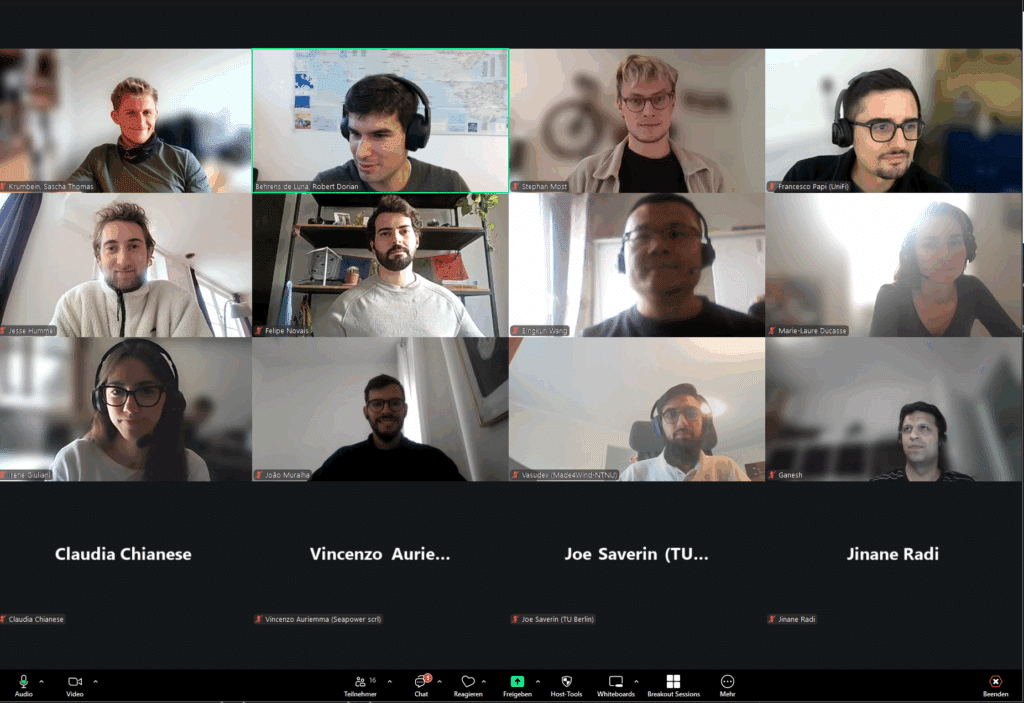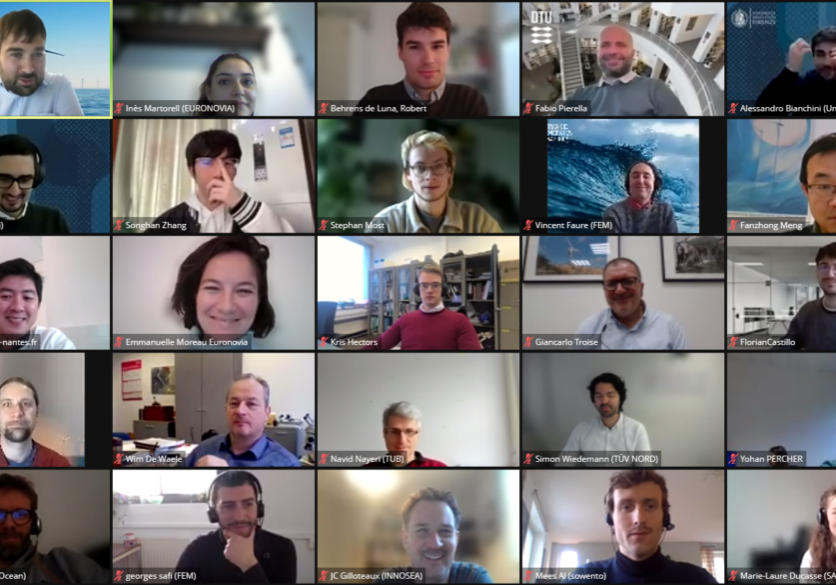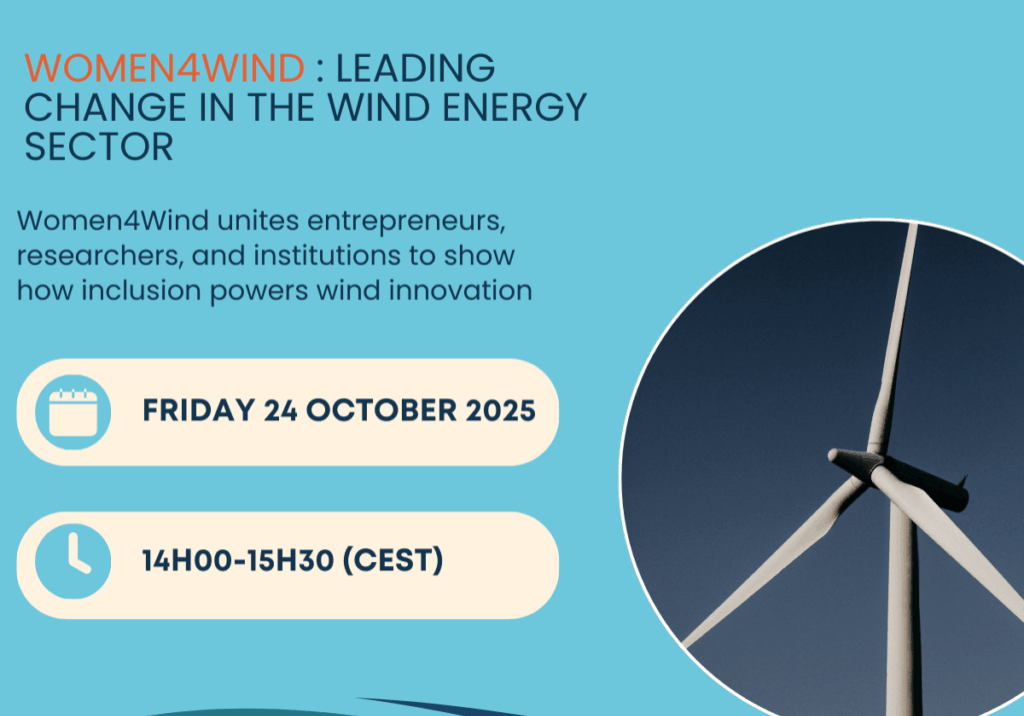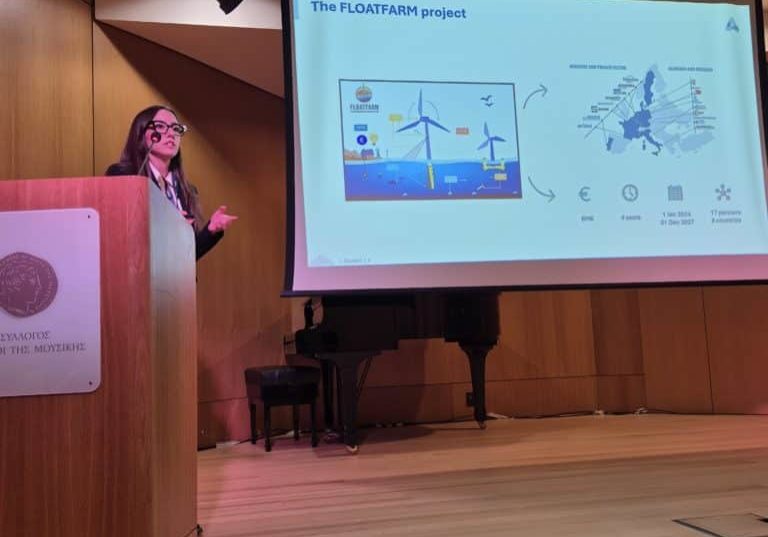FLOATFARM has successfully delivered two hands-on training workshops introducing the optimization frameworks developed under Task 7.1. The sessions focused on integrated analysis and co-design for floating offshore wind and showcased the coupling of HAWC2 and QBlade within the WEIS framework developed by NREL, enabling multi-disciplinary design optimization (MDAO) and control co-design (CCD).
Workshop dates :
- WEIS–HAWC2 Workshop: Thursday, 23 October 2025, 09:00–13:00
- QBtoWEIS Workshop: Friday, 24 October 2025, 09:00–13:00
What we covered
WEIS–HAWC2 Workshop:
- Overview of FLOATFARM project and a detailed presentation of the WEIS-HAWC2 optimization framework.
- Installation of WEIS-HAWC2 and Hands-on task 1: Demonstration run of a simple optimization problem on FOWT.
- Introduction of How-to setup and run an optimization problem within WEIS-HAWC framework.
- Hands-on task 2: Perform a customized optimization problem by participants including floater, tower, and/or mooring design.
- WEIS-HAWC2 can be downloaded from here: FloatFarm / weis-hawc2-coupling · GitLab
QBtoWEIS Workshop:
- Overview of FLOATFARM objectives and the role of QBtoWEIS within the project
- Introduction to the integration of QBlade within NREL’s WEIS framework.
- Hands-on conversion of WindIO turbine definitions to QBlade models.
- Execution of QBlade simulations and batch runs via the QBtoWEIS interface.
- Setup and execution of a basic MDAO–CCD optimization using QBtoWEIS.
Outcomes & insights
WEIS–HAWC2 Workshop:
- The workshop was a great success, attended by 23 participants which are a mixture of DTU internal and external participants from both academia and industry.
- Participants know what is WEIS-HAWC2, its capabilities and how to use it.
- The workshop demonstrated the “easy installation and run” feature of WEIS-HAWC2 framework on DTU’s HPC.
- Both academia and industry show strong interests to test and use WEIS-HAWC2.
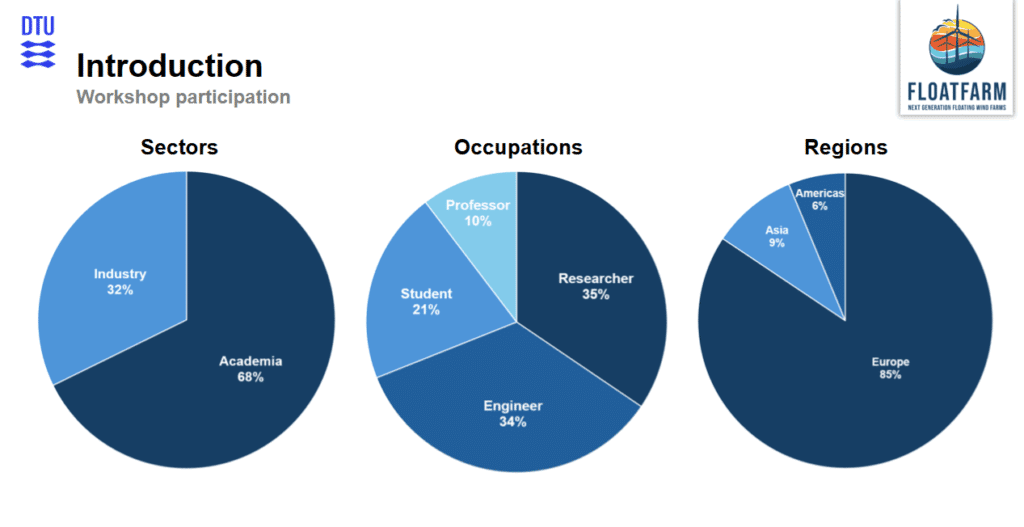
QBtoWEIS Workshop:
- 18 participants successfully completed all hands-on exercises.
- The workshop demonstrated the use of WindIO as a standardized data format for wind turbine simulation
- Participants gained a clear understanding of how QBtoWEIS automates turbine simulations and optimizations.
- Strong interest expressed in advanced topics such as surrogate modeling, design-of-experiments, and cluster computing.
